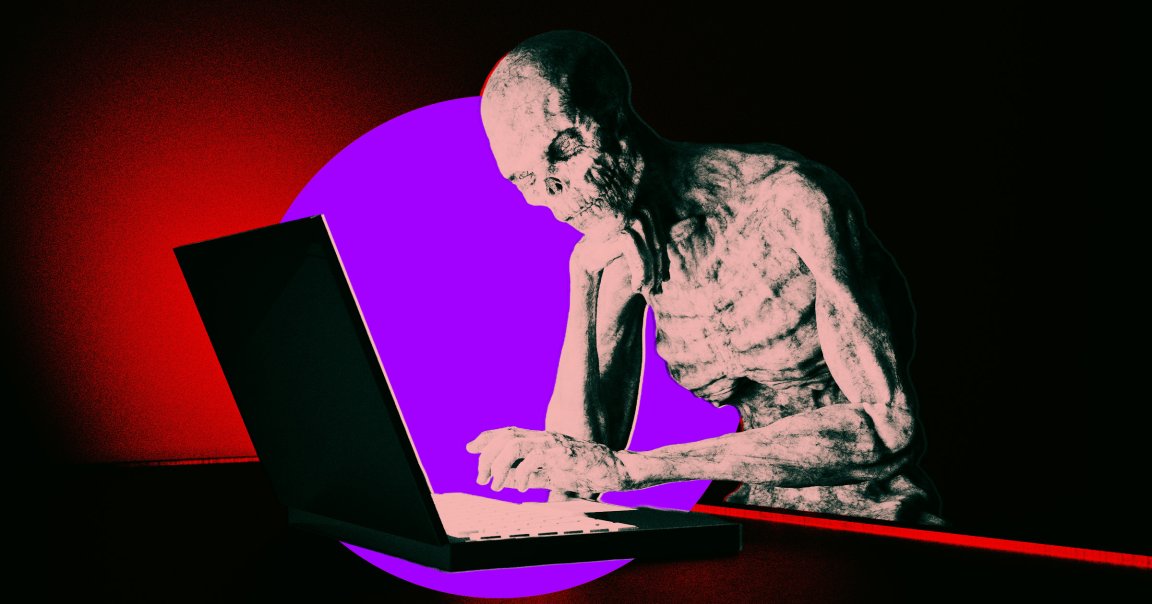
You hear two wildly diverging narratives about AI lately.
One, emanating mainly from the tech sector, is that AI is not only poised to supersede human intelligence, but is already radically changing the world and workforce. The other is that the tech’s mostly a nothingburger, with the boosters from the first narrative forcing its slop into everyone’s life, while cutting-edge AI systems remain flawed and unlikely to improve enough to be really useful for much, other than filling the web with spam and triggering mental health crises.
And yet corporate executives have wasted no time deploying the glitchy, untested tech on their companies, leading to a verifiable uptick in white collar layoffs. But if AI literally can’t do the job, then what gives?
One worker affected by the turmoil was recently profiled by the Independent. His experience is instructive, and indicative of this contradiction in so-called AI automation.
A software engineer of 21 years named Shawn K — that’s not a pseudonym, according to the newspaper; his full last name is K — has become something of a poster child for workers whose lives have been disrupted by AI hype since he was laid off from his startup job in April of last year. As a tech worker, it seems he would have been instrumental in bringing about his own demise.
“We had been reorienting the company towards AI, adding on AI features all throughout the software and trying to capitalize on AI to our customers,” K told the Independent. “Then shortly after that kind of restructuring and strategizing… I got laid off.”
After his layoff, the veteran engineer struggled to find work. He eventually moved into a trailer, where he did gig work on meal delivery apps to stay afloat. After sending out over 800 job applications, he finally landed a gig as a contractor.
“I’m really convinced that anybody whose job is done on a computer all day is over,” he told the Independent. “It’s just a matter of time.”
Though K is now an outspoken figure on the topic of AI automation, the reality of his situation is a little more nuanced.
As tech critic Ed Zitron noted in a recent analysis, the bill on Wall Street’s vast AI spending is well past due. Faced with the financial reality of AI’s failure to replace human labor, companies are likely turning to layoffs not because LLMs are suddenly doing everyone’s jobs, but as a measure to cut overhead costs and improve margins.
Shawn K, an engineer making over $150,000 to code for a startup, represented a lot of overhead in a tumultuous business market. Though LLMs spit out error-ridden code more often than not, a budding market of “AI graders” — contract workers hired to do the tedious work of fixing AI’s wrong answers — means K’s former company can outsource his work for a fraction of the cost.
Is it ethical? Only in a world fueled by growth at all costs. But does it make business sense? Not for very long.
Ultimately, Zitron warns that the contradiction between billions in AI spending and AI’s actual abilities will lead to a “subprime AI crisis” in which workers are forced to shoulder the tech industry’s financial burden — sacrificing the humans that make their companies run, essentially, in order to make AI look good on paper.
“I fear tens of thousands of people will lose their jobs, and much of the tech industry will suffer as they realize that the only thing that can grow forever is cancer,” Zitron writes. “The tech industry is building toward a grotesque reckoning with a lack of creativity enabled by an economy that rewards growth over innovation, monopolization over loyalty, and management over those who actually build things.”
More on AI: CEO Says AI Will Replace So Many Jobs That It’ll Cause a Major Recession